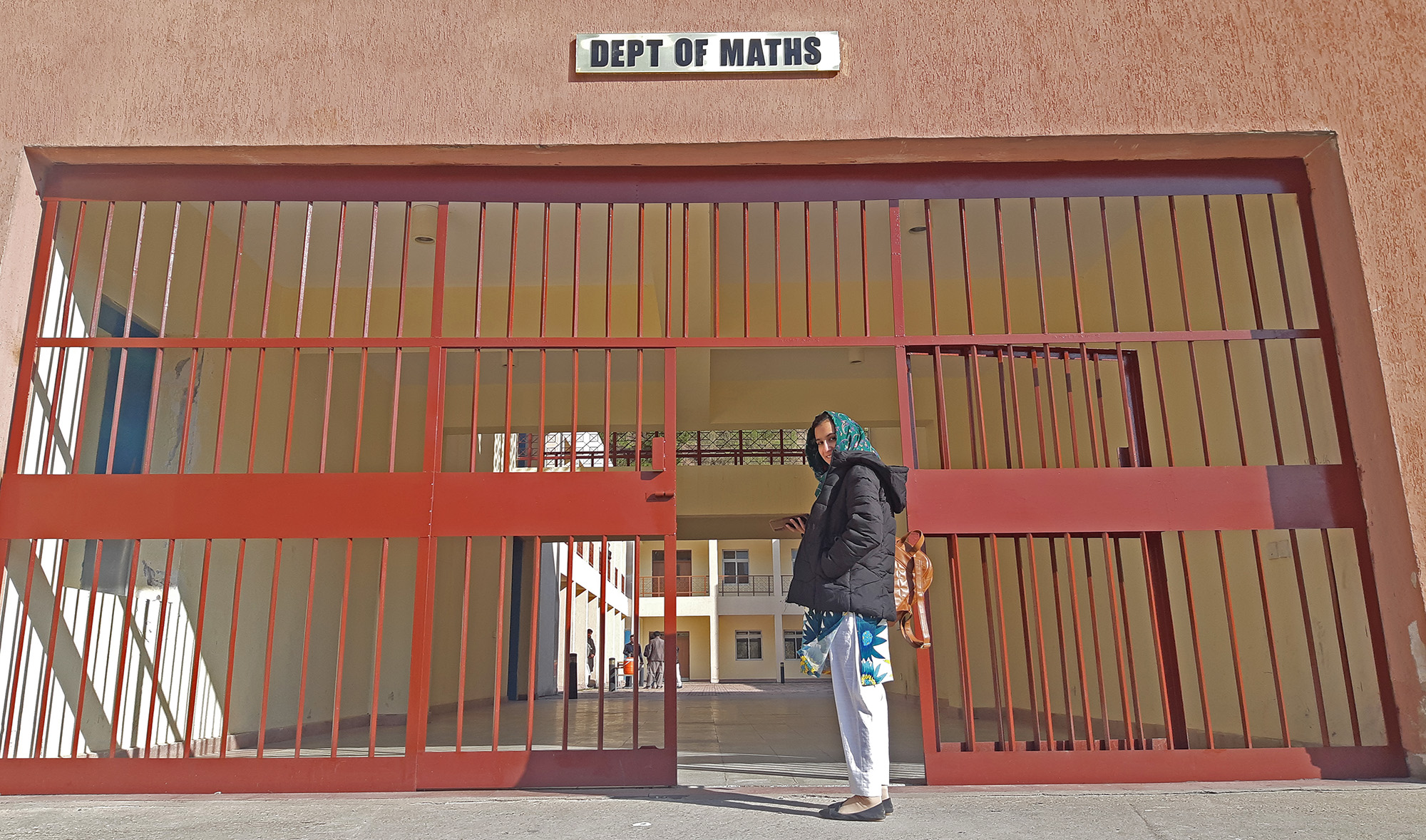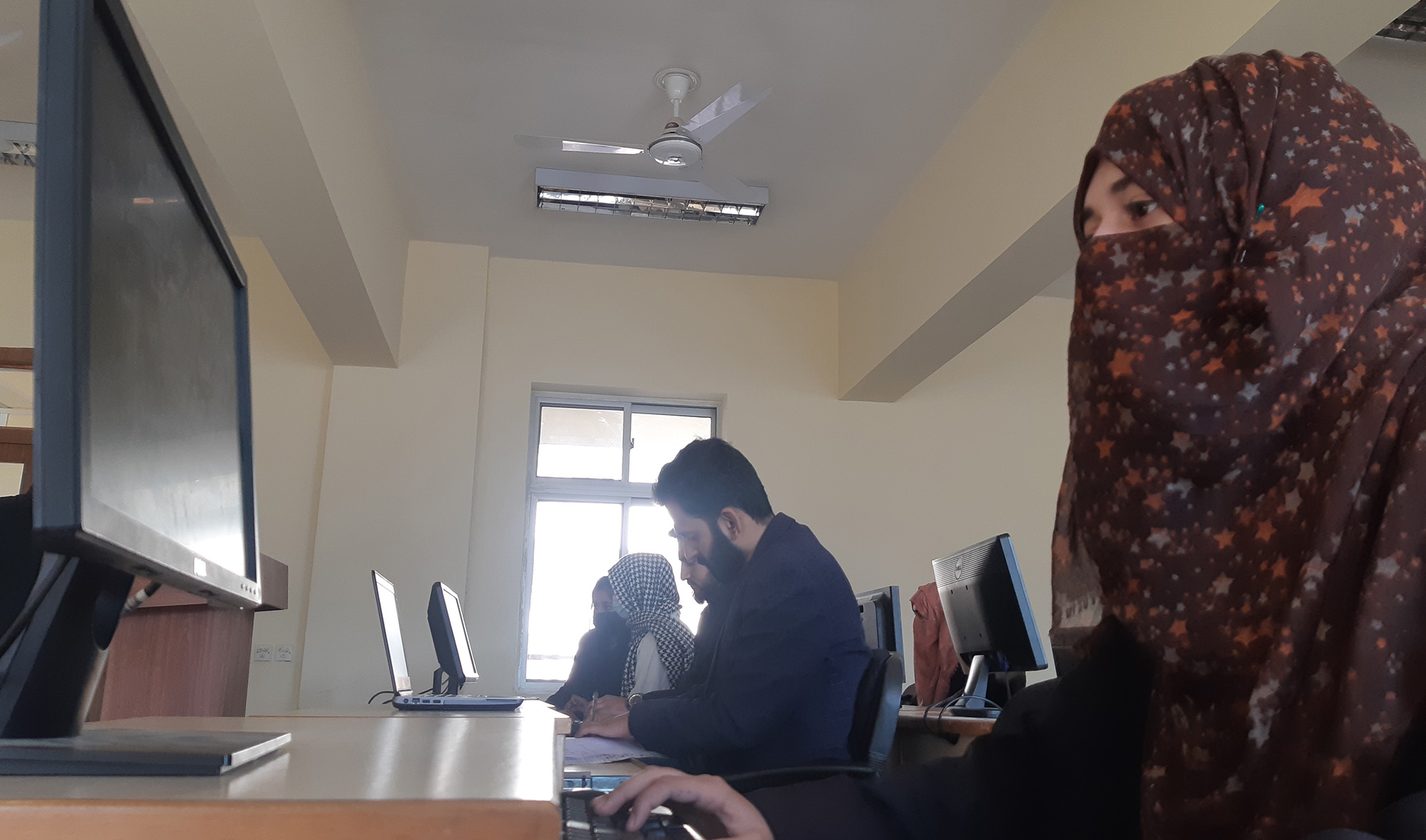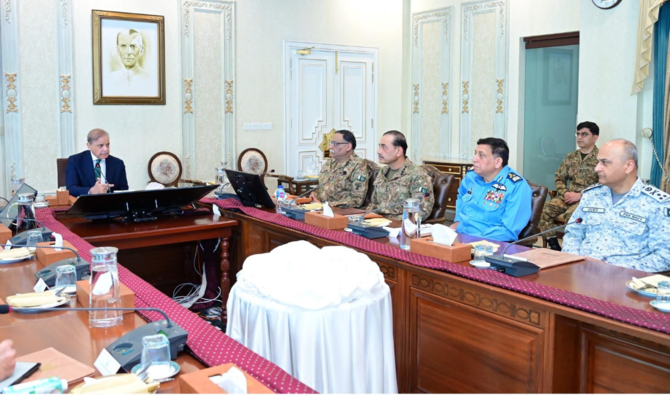MUZAFFARABAD: A Saudi-funded campus of the University of Azad Jammu and Kashmir is fostering science education in the region and female enrollment into the male-dominated field, as nearly half of its students are women — higher than the global average.
The multimillion-dollar King Abdullah Campus in Chhatar Kalas, 22 kilometers from Muzaffarabad, the regional capital was financed by Saudi Arabia, which has funded several development projects in Azad Kashmir, helping it return to normalcy after a devastating earthquake in 2005 destroyed most of its infrastructure, including the university.
Built on nearly 100 hectares, the campus was completed in late 2019, and started classes in September 2020.
"King Abdullah Campus was completed with the financial help of Saudi Development Fund worth 9 billion rupees ($51 million)," Raja Abdul Qayyum Khan, director of the campus, told Arab News.
The campus now hosts most of the university's 9,000 students and is home to its science departments, including physics, computer science, mathematics, chemistry, and geology, which see female enrollment higher than in other parts of Pakistan, or even the world.

A student stands in front of the Department of Mathematics at King Abdullah Campus of the University of Azad Jammu and Kashmir in Chhatar Kalas, Pakistan, on January 14, 2022. (AN photo by Zulfiqar Kunbhar)
Globally, only 35 percent of STEM students in higher education are women, according to UNESCO data. At King Abdullah Campus, women constitute 47 percent of all students.
"Out of a total 5,440 students enrolled in King Abdullah Campus, there are 2,877 males and 2,563 females. That speaks volumes about girls' participation," Khan said. "We would like to see that ratio further increase."
After the earthquake destruction, many students of the University of Azad Jammu and Kashmir had to travel far to other campuses — some even to Islamabad — to attend courses.
With social norms and safety concerns limiting women's mobility across Pakistan, traveling alone tens of kilometers from home was nearly impossible for girls.

Students attend a class at a computer lab of King Abdullah Campus of the University of Azad Jammu and Kashmir in Chhatar Kalas, Pakistan, on January 14, 2022. (AN photo by Zulfiqar Kunbhar)
"The establishment of King Abdullah Campus at Chhattar Kalas has given advantage to me and many other girl students," 19-year-old mathematics student Samar Qayum told Arab News, explaining that traveling long distance was for them a major burden.
"It was possible that the number of female students would have gone down in this region," she said. "This facility has made life easier for girls."
Boys, too, are happy.
Physics student Waqar Younis said the establishment of the campus allowed him to save on transportation and accommodation, as those were major costs for the students.
"Establishment of King Abdullah Campus has given me multiple advantages," he added.
In the near future, the campus is likely to become even more attractive as $8.5 million computer science labs should be ready this year
The nine labs will be equipped with 600 computers, allowing the study of artificial intelligence and machine learning.
"We are hopeful that by this year in August we may get the equipment," Dr. Rabia Riaz, head of the Department of Computer Science and Information Technology, told Arab News.
"I may say that this sort of equipment and building structure is not only unavailable in whole Azad Kashmir, but also in all over Pakistan."





















